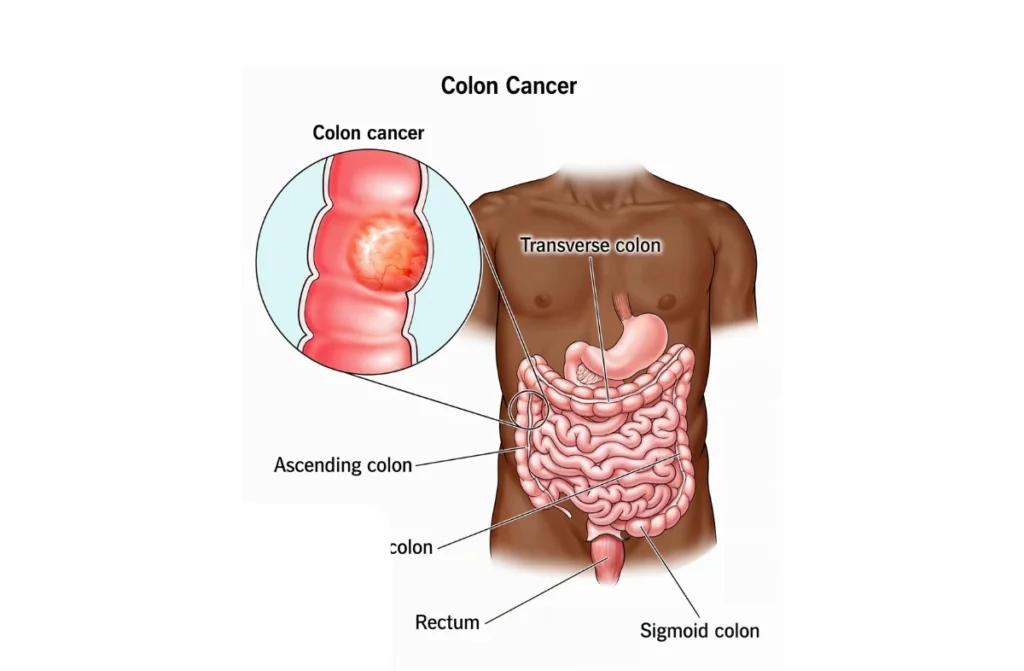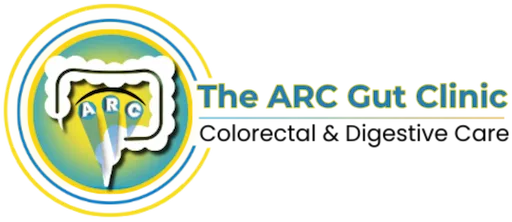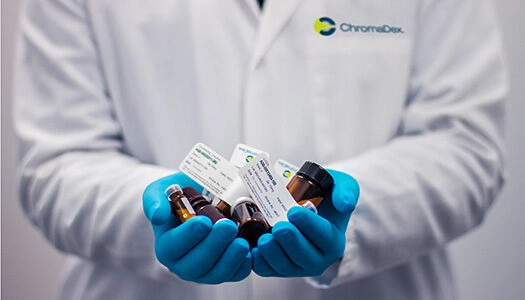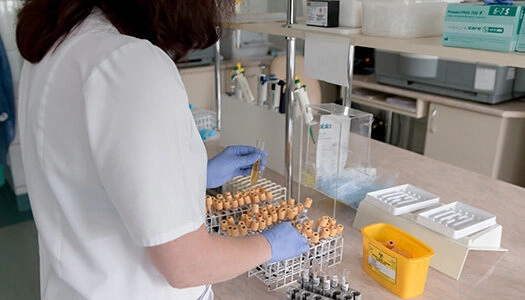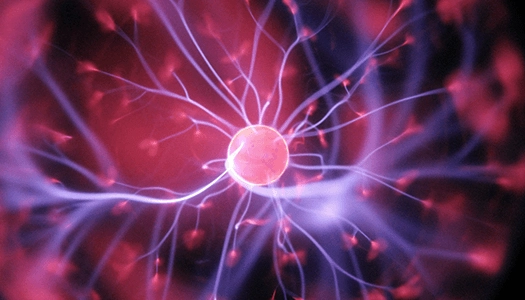When it comes to colon cancer treatment in Chennai, understanding the disease and its progression is crucial. With many hospitals specializing in oncology, Chennai stands out as a destination for effective, affordable, and personalized care. Locations like colon cancer treatment in Tharamani, Thoraipakkam, colon cancer treatment in OMR, and ECR have specialized centers offering cutting-edge colon cancer treatment with expert medical teams dedicated to delivering comprehensive solutions.
What is Colon Cancer?
Colon cancer starts in the large intestine (colon) or rectum. It often begins as benign polyps that may develop into cancer over time. Early detection significantly increases the chances of successful treatment.
What are the different stages of colon cancer?
Colon cancer progresses through a series of well-defined stages, each impacting treatment options and prognosis. Recognizing these stages is crucial for timely intervention and effective management.
- Stage 0 – Carcinoma in Situ: This is the earliest phase, where abnormal cells are found in the innermost lining of the colon. These cells haven’t invaded deeper tissues and can often be removed during a colonoscopy.
- Stage I: Cancer has grown into the inner wall of the colon but hasn’t spread beyond it. Surgery is often curative at this stage.
- Stage II: The tumor penetrates deeper into or through the wall of the colon. Lymph nodes are still unaffected. Depending on factors like grade and location, additional chemotherapy may be advised post-surgery.
- Stage III: Cancer spreads to nearby lymph nodes but not to distant organs. Treatment typically includes surgery followed by chemotherapy to reduce recurrence risk.
- Stage IV: This advanced stage involves spread to distant organs such as the liver or lungs. Treatment is complex and may involve surgery, targeted therapy, chemotherapy, or immunotherapy, often in combination.
Types of Colon Cancer
- Adenocarcinomas: The most common type, accounting for 95% of cases.
- Neuroendocrine Tumors: Rare but aggressive forms.
- Gastrointestinal Stromal Tumors (GISTs): Occur in specialized cells of the digestive tract.
- Lymphomas: Cancers that begin in immune cells.
Colon cancer treatment in Tharamani and other areas offers tailored approaches for these types, ensuring personalized care and better outcomes.
What are the symptoms of colon cancer?
Recognizing the symptoms of colon cancer can lead to early intervention.
- Persistent abdominal discomfort or cramps
Ongoing bloating, sharp pain, or cramping that doesn’t subside with typical remedies.
- Blood in the stool or rectal bleeding
May appear as bright red streaks or darker, tar-like stools indicating internal bleeding.
- Fatigue and unexplained weakness
Often due to iron-deficiency anemia caused by chronic blood loss in the gastrointestinal tract.
- Sudden weight loss
Losing weight unintentionally, despite no changes in diet or activity levels.
- Changes in bowel habits
Includes prolonged constipation, diarrhea, or a noticeable change in stool shape or consistency (e.g., pencil-thin stools).
- A feeling of incomplete bowel evacuation
Even after passing stool, the sensation of needing to go again.
- Excessive gas or bloating
Especially if persistent and accompanied by discomfort.
- Nausea or vomiting
Particularly in advanced stages where a tumor may partially block the intestine.
- Iron-deficiency anemia
Identified through blood tests, often the first clue in asymptomatic individuals.
- Pelvic or rectal pain
A possible sign of locally advanced or metastatic disease.
Colon cancer treatment in Thoraipakkam emphasizes the importance of prompt diagnosis if any of these symptoms are observed. Regular screenings can catch polyps before they turn cancerous.
What causes colon cancer?
Several factors contribute to the development of colon cancer, including lifestyle choices like a diet low in fiber and high in red or processed meat, which also affect Acidity & Ulcer Treatment
-
Genetic Factors: A family history of colon cancer increases the likelihood of developing it. Inherited genetic mutations such as those found in Lynch syndrome or familial adenomatous polyposis (FAP) can significantly raise the risk.
-
Diet and Lifestyle: High consumption of red and processed meats, low fiber intake, and lack of physical activity contribute to the risk of colon cancer.
-
Age and Gender: People over 50 are more prone to developing colon cancer, with a higher incidence in men.
-
Chronic Conditions: Inflammatory bowel diseases like Crohn’s disease or ulcerative colitis increase the likelihood of developing colon cancer.
Recognizing the causes can help in early intervention, making colon cancer treatment in Chennai more effective.
Risk factors for Colon Cancer
Several lifestyle, genetic, and environmental factors contribute to the development of colon cancer. Understanding these risk factors helps in early detection and prevention.
- Age: Most cases occur in individuals aged 50 and above, although early-onset colon cancer is on the rise.
- Family History and Genetics: Individuals with a family history of colon cancer or inherited syndromes such as Lynch syndrome or familial adenomatous polyposis (FAP) are at greater risk.
- Smoking and Alcohol: Long-term tobacco use and heavy alcohol consumption have been linked to increased cancer risk.
- Inflammatory Bowel Disease: Conditions like Crohn’s disease or ulcerative colitis cause chronic inflammation of the colon, raising cancer risk over time.
- Type 2 Diabetes: This metabolic condition is also associated with an elevated risk due to shared risk pathways like insulin resistance and inflammation.
Diagnosis of Colon Cancer
Colon cancer is diagnosed using advanced tools and methods:
- Colonoscopy: The gold standard for detecting and removing polyps
- CT Colonography: A less invasive imaging technique
- Biopsy: Analyzing tissue samples to confirm cancer presence
Hospitals providing colon cancer treatment in Chennai utilize state-of-the-art diagnostic technology to ensure precise results, paving the way for personalized treatment strategies.
Treatment of Colon Cancer
Effective colon cancer treatment depends on the stage and type of cancer. Multidisciplinary teams craft personalized treatment plans:
- Surgery: The primary treatment for early-stage cancer, removing tumors and affected lymph nodes.
- Chemotherapy: Uses drugs to destroy cancer cells and is often employed after surgery to prevent recurrence.
- Radiation Therapy: Often combined with chemotherapy for rectal cancer, reducing tumor size before surgery.
- Targeted Therapy: Focuses on specific genetic changes within cancer cells to inhibit growth.
Colon cancer treatment in Tharamani and OMR integrates a holistic approach involving specialists from multiple disciplines to enhance patient outcomes.
Colon Cancer Treatment Cost in Chennai
The cost of colon cancer treatment in Chennai varies based on the hospital, type of treatment, and stage of cancer. On average, it ranges between INR 2,00,000 and INR 6,00,000. Facilities offering colon cancer treatment in Thoraipakkam and colon cancer treatment in ECR provide affordable yet comprehensive care.
Colon cancer treatment cost in Chennai typically includes diagnostic tests, surgery, chemotherapy, and follow-up consultations. Several hospitals offer financial support programs and insurance guidance to help patients manage expenses.
Prevention of Colon Cancer
While colon cancer cannot always be prevented, certain lifestyle changes can help reduce the risk:
-
Healthy Diet: A balanced diet rich in fruits, vegetables, and whole grains can significantly lower the risk of colon cancer. To learn more, explore Diet Counselling in Chennai.
-
Regular Exercise: Engaging in physical activity regularly can lower the risk by helping maintain a healthy weight and improving digestive health.
-
Screening: Regular screening, particularly colonoscopies, is vital for early detection, especially for individuals over 50 or those with a family history of colon cancer.
-
Avoiding Smoking and Excessive Alcohol: Smoking and heavy alcohol consumption are well-known risk factors for colon cancer. Avoiding these can drastically reduce your risk.
-
Managing Chronic Conditions: Proper management of inflammatory bowel diseases through medical supervision can also prevent the development of colon cancer.
By adopting preventive measures and undergoing routine screenings, the risk of developing colon cancer can be significantly reduced. Colon cancer treatment in Chennai focuses not only on advanced treatment but also on educating patients about effective preventive strategies.
